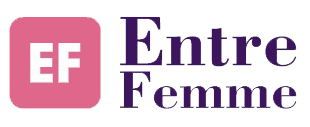The Fundamentals of Professional Writing
Is your writing stuck in an elevator pitch on repeat? Stuck cycling the exact tired phrases and struggling to convey your brilliance clearly and concisely?
Fear not, wordsmith in the wilderness! The compass to professional writing mastery awaits! This guide unlocks the fundamental secrets that transform muddled emails into persuasive proposals, dull reports into riveting narratives, and hesitant memos into crystal-clear communication that gets results.
- David Parker
- May 13, 2025
- 0 Comments
- 2503 Views
In a previous installment, we explored different communication styles, which you can revisit by clicking right after this paragraph. First, let me share a brief personal story that was somewhat dark for me. Upon completing high school, I needed to make some money, and a friend hooked me up with a job interview as a receptionist at a prestigious local hotel. The catch was I had to write a professional letter. So, I took a tutorial or two online and swiftly submitted my note. The position was rejected for one reason: I hadn't written a letter that matched the professional standards of the environment I was aiming to enter. The hotel was quite magnificent. I could have easily made $100 or even $200 a day. I never imagined that poorly writing a professional letter would haunt me. However, since then, I've learned how to write them well. I thought, why not share my little knowledge with you; it might help.
Alright, let's get down to the nitty-gritty. We'll review what sets professional writing apart from other forms of writing and practice essential conventions that will help you communicate effectively.
I- Email Etiquette
The art of professional emailing relies on several essential principles that transform simple correspondence into professional and respectful communication.
1. Professional Email Address:
Your email address is a virtual business card. Opt for a traditional address like John.Doe@EmailService.com for professional communication, reserving humorous addresses for friend exchanges.
In essence, avoid fantasy emails as much as possible. Your unique name will make an excellent email. Avoid numbers and symbols in your professional email, or at least if you want a professional email.
2. Useful Subject Line:
Clarity in the subject line is crucial. Include important information such as project names or dates and avoid requests or catchy formulations.
For this, let's see some examples:
In the context of offering your services or selling a product.
- "Revolution in the Business World - Don't Miss This Unique Opportunity!!!"
While this formula may seem sensational, it lacks specificity about the actual nature of the opportunity, risking creating false expectations.
- "Your Life Will Change After Opening This Email!"
Although this phrase is intriguing, it is very general and provides no concrete information about the content of the email, which can lead to confusion.
- "Exclusive Offer Valid for the Next 24 Hours - Act Now!"
While scarcity is a persuasive element, a very short time limit can be perceived as an aggressive sales tactic that could harm credibility.
- "Discover the Secret to Instant Success!"
Promises of instant success can seem too good to be accurate and often lack credibility. Recipients may be skeptical about the reality of these claims.
- "Earn Big Without Doing Anything - Magic Formula Revealed!"
Promises of effortless gains can be perceived as scams. This formula, although catchy, may not be taken seriously.
In the context of a job search:
Examples of Catchy Formulas to Avoid When Job Hunting:
- "The Application That Will Revolutionize Your Company!"
While ambition is necessary, such a statement may seem presumptuous and lack modesty.
- "Exceptional Expert Seeking Employer Ready for Immediate Success!"
This formula may seem too focused on the candidate, giving the impression that the employer must meet high expectations without having enough information about the candidate.
- "Your Next Employee of the Year Contacts You!"
While this may be perceived as confident, it may also seem too presumptuous and lack professionalism.
- "I Am the Perfect Candidate - You Can't Do Without Me!"
This formula may seem arrogant and does not emphasize the specific value the candidate could bring to the company.
- "Ready to Transform Your Company - Hire Me and Experience Change!"
While enthusiasm is necessary, this formula may seem exaggerated and lack concrete details about the candidate's skills and experience.
- Professional Greeting/Closing:
In a professional context, opt for short and cordial greetings. "Dear..." or "To whom it may concern" are appropriate beginnings, while "Thank you," or "Best Regards" elegantly conclude.
- Identify the Connection:
In a cold email, quickly identify the source of the email address, especially if it was given to you by someone else.
- Provide Context:
Be transparent from the start about the reason for your correspondence. Clearly explain and humbly demonstrate why you are reaching out.
- Concise Language:
Brevity is a virtue. Always keep your writing as short as possible to captivate your reader and respect their time.
- Correct Formatting:
Professional presentation is essential. Use correct formatting, including a greeting, breaks between paragraphs, no indentations, and impeccable spelling and capitalization.
- No Quotes or Colors:
Avoid formatting features like colors, underlining, bolding, and italicizing that could distract from your message and detract from your credibility.
II- Cold Email Example
Julia gave me your information. I'm Cara Morales, a sophomore at State University passionate about marketing and advertising. Marketing is my calling, and despite the lack of family support, I'm determined to excel in the field. I wanted to tell you that Julia has been a LIFE-CHANGING MENTOR; she's just the most excellent and most helpful! It would help if you talked to her about all her fantastic work as my mentor. I'm emailing today because she recommended I speak to you about an informational interview so I can learn more about your experience in marketing and what was helpful for you to know early on in your career. I haven't done much marketing-related stuff yet, but I know you can help me with that :). You can follow up with me at my email unspoken.girl@TVFan.net. I mostly use it for talking to other people on message boards, but I check it most often.
"My mission in life is not merely to survive but to thrive, and to do so with some passion, some compassion, some humor, and some style." - Maya Angelou.
III- Professional Email Signature
Examples:
First Name Last Name
School Name
Organization
Way to Connect
Jane Doe
State University
'23-'24 Student Government Representative
Add me on LinkedIn
Clarity and precision remain the pillars of any successful professional communication. Avoiding overly generic catchy phrases ensures transparent communication and strengthens credibility. Whether selling services or searching for a job, simplicity and specificity in subject lines are indispensable assets.

 | Unlock Success with Our Guide
| Unlock Success with Our Guide



0 Comments